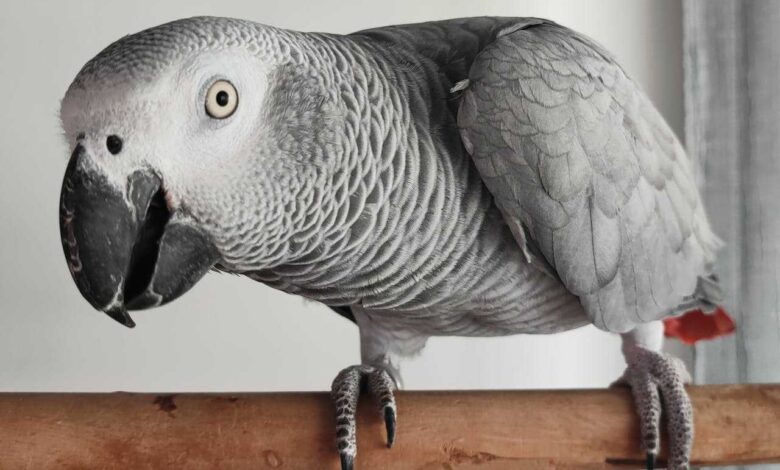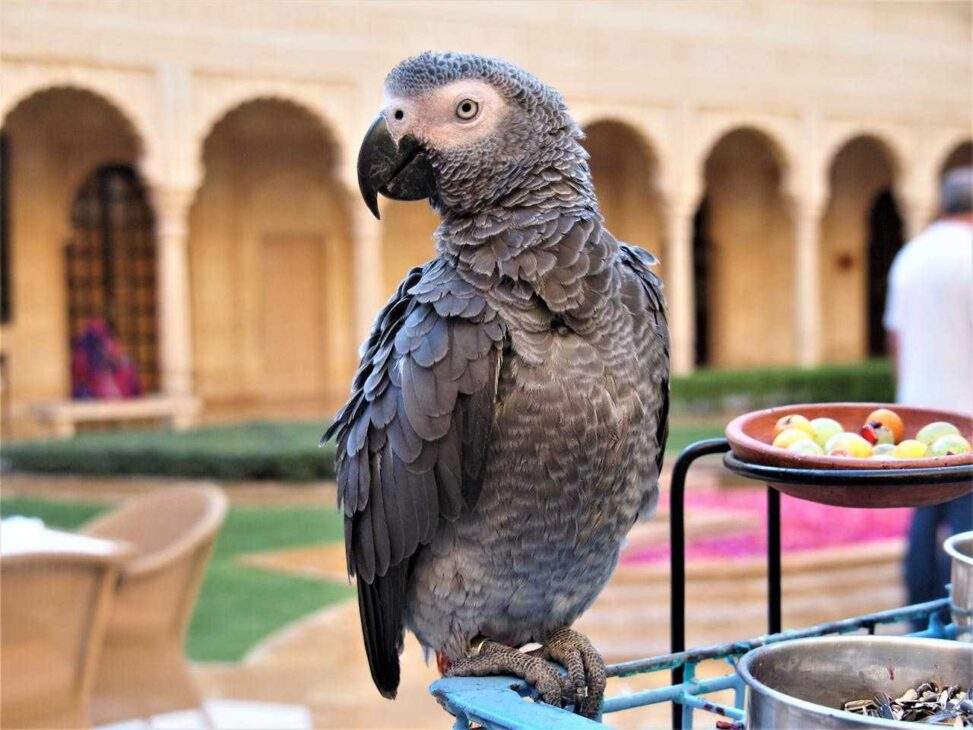The Intelligence of Birds: 11 Fascinating Scientific Discoveries About Avian

Birds have long captivated humans with their beauty, songs, and remarkable abilities. In recent years, scientific research has uncovered an astonishing level of intelligence in birds, challenging the notion that they are merely creatures of instinct. This guide explores the intelligence of birds, shedding light on their cognitive abilities, problem-solving skills, communication methods, and emotional complexity.
For centuries, we’ve looked up at the skies, marveling at the intelligence of humans. But what about our feathered friends? Have you ever stopped to wonder about the minds of birds? From the clever crow to the problem-solving parrot, the avian world is teeming with cognitive abilities that might surprise you.
Prepare to have your perception of birds challenged as we delve into the fascinating world of bird intelligence. We’ll explore groundbreaking research, uncover hidden talents, and question our long-held assumptions about these winged wonders. Let’s take flight on a journey to discover the astonishing mental capabilities of our feathered neighbors.
Bird Intelligence: An Overview
Understanding Bird Cognition
Bird cognition refers to the mental processes that birds use to acquire knowledge, solve problems, and make decisions. This field of study has gained significant attention as researchers have discovered that many bird species possess cognitive abilities comparable to those of mammals, including primates.
The Bird Brain: A Misunderstood Organ
For a long time, the term “bird brain” was used derogatorily to suggest stupidity. However, recent studies have shown that bird brains, despite being small, are densely packed with neurons, particularly in the pallium, a region equivalent to the mammalian cortex. This neural architecture enables sophisticated cognitive functions.
Comparative Psychology and Avian Intelligence
Comparative psychology, which studies the behavior and mental processes of different species, has provided valuable insights into avian intelligence. By comparing birds to other animals, researchers can better understand the evolutionary roots and adaptive significance of intelligence across species.
Bird Learning and Problem-Solving
Learning Abilities in Birds
Birds exhibit remarkable learning abilities, often through social learning, where they observe and imitate the behavior of others. This is particularly evident in species like parrots, crows, and ravens.
Parrot Intelligence
Parrots, especially African grey parrots, are renowned for their ability to mimic human speech and sounds. However, their intelligence goes beyond mimicry. Studies have shown that they can understand concepts like shapes, colors, numbers, and even basic arithmetic.
Crow Intelligence
Crows, part of the corvid family, have demonstrated extraordinary problem-solving skills. They can use tools, understand cause-and-effect relationships, and even plan for the future. In one famous experiment, New Caledonian crows bent a piece of wire to create a hook to retrieve food from a container, showcasing their innovative thinking.
Problem-Solving Skills
Birds are adept problem solvers, capable of tackling complex tasks that require creativity and insight.
Raven Intelligence
Ravens, another member of the corvid family, are known for their impressive problem-solving abilities. They can solve puzzles that involve multiple steps and use tools to achieve their goals. Ravens have been observed using sticks to extract insects from tree bark and dropping nuts on roads for cars to crack open.
Bird Tool Use
Tool use is a hallmark of advanced cognition, and several bird species have been documented using tools in the wild. For example, some birds use sticks to extract insects from holes, while others drop stones to crack open shells. The ability to use tools requires not only physical dexterity but also an understanding of the properties of objects and their potential uses.
Bird Communication Systems
Complexity of Bird Language
Bird communication is rich and varied, encompassing vocalizations, body language, and even visual signals. Some species have developed complex languages that rival those of primates.
Bird Song and Calls
Birdsong is perhaps the most well-known form of avian communication. Birds use songs to attract mates, defend territories, and communicate with others. Each species has its own unique song, and some birds can learn and mimic the songs of other species.
Bird Language Studies
Research into bird language has revealed that some species can string together different sounds to convey specific meanings, similar to how humans use words to form sentences. For example, certain species of birds have alarm calls that vary depending on the type of predator, indicating a level of semantic communication.
Bird Communication Systems
The study of bird communication systems extends beyond vocalizations. Birds use a variety of methods to convey information, including visual signals like plumage displays and behavioral cues like dance movements.

Bird Memory and Awareness
Bird Memory
Birds possess impressive memory capabilities, allowing them to remember locations, recognize individuals, and recall past experiences.
Spatial Memory
Many bird species rely on spatial memory for activities such as food caching and navigation. Clark’s nutcrackers, for example, can remember the locations of thousands of cached seeds, even months after hiding them.
Episodic Memory
Episodic memory, the ability to recall specific events, has been observed in birds. Western scrub-jays can remember the what, where, and when of food caching events, suggesting a level of memory complexity previously thought to be exclusive to humans and primates.
Bird Awareness and Consciousness
The concept of consciousness in birds is a topic of ongoing debate. While it’s challenging to measure consciousness directly, certain behaviors suggest that birds may possess a form of self-awareness.
Bird Self-Awareness
Self-awareness in animals is often tested using the mirror test, where an animal is marked with a visible dye and given access to a mirror. If the animal uses the mirror to inspect and attempt to remove the mark, it suggests self-recognition. Some bird species, such as magpies, have passed this test, indicating a level of self-awareness.
Bird Emotions
Birds exhibit a range of emotions, from joy and affection to grief and anger. These emotional responses are often observed in their interactions with conspecifics and humans.
Bird Empathy
Empathy, the ability to understand and share the feelings of others, has been documented in some bird species. For example, ravens have been observed consoling distressed companions, suggesting a level of emotional sensitivity and social bonding.
Bird Behavior Research
Bird Cognition Studies
Ongoing research into bird cognition continues to reveal new insights into their mental capabilities. These studies often involve carefully designed experiments that test various aspects of intelligence, such as problem-solving, memory, and social learning.
Avian Intelligence
The term “avian intelligence” encompasses the various cognitive abilities that birds possess, from learning and problem-solving to communication and emotional complexity. Understanding avian intelligence helps researchers appreciate the diversity of cognitive strategies in the animal kingdom.
Bird Neurology
Advances in neuroimaging and other technologies have allowed scientists to study the bird brain in greater detail. These studies have identified specific brain regions associated with different cognitive functions, providing a deeper understanding of how bird brains support complex behaviors.
Bird Evolution
The evolution of bird intelligence is a fascinating area of study. Birds are descendants of theropod dinosaurs, and their cognitive abilities have likely evolved in response to various ecological challenges and social interactions.
Bird Problem-Solving Abilities
Innovative Thinking
Birds exhibit innovative thinking by solving novel problems and adapting to new situations. This ability is particularly evident in species like crows and ravens, which often face complex challenges in their environments.
Example: The New Caledonian Crow
The New Caledonian crow is renowned for its problem-solving abilities and use of tools. In one experiment, researchers presented a crow with a series of tasks requiring it to use tools in a specific sequence to obtain a food reward. The crow successfully completed the tasks, demonstrating an understanding of the necessary steps and the tools required.
Social Learning
Social learning, where individuals learn from observing others, is a critical aspect of bird cognition. Many bird species, including parrots and corvids, learn behaviors and skills by watching and imitating conspecifics.
Example: Kea Parrots
Kea parrots, native to New Zealand, are known for their playful and inquisitive nature. Researchers have observed keas learning how to open food containers by watching other keas, highlighting the importance of social learning in their problem-solving repertoire.
Bird Communication and Language
Bird Vocalizations
Bird vocalizations serve various functions, from attracting mates to signaling alarm. Some birds have extensive repertoires of calls and songs, which they use to communicate specific information.
Example: The Lyrebird
The lyrebird is famous for its incredible vocal mimicry. It can imitate the calls of other bird species, as well as human-made sounds like chainsaws and camera shutters. This remarkable ability showcases the complexity and flexibility of bird vocalizations.
Bird Communication Systems
Birds use a combination of vocal, visual, and behavioral signals to communicate. These systems are often species-specific and can convey a wide range of information.
Example: Honeyguides
Honeyguides are birds that lead humans to bee nests, signaling the location through specific calls and flight patterns. This unique form of communication benefits both the birds, which feed on the leftover beeswax, and the humans, who harvest the honey.
Bird Emotions and Awareness
Bird Emotions
Birds display a range of emotions that influence their behavior and social interactions. Understanding these emotions provides insights into their mental and emotional lives.
Example: Grieving Behavior in Birds
There are documented cases of birds exhibiting behaviors that suggest grief. For instance, when a member of a bird’s social group dies, other birds may exhibit signs of distress, such as vocalizing mournfully and staying close to the deceased.
Bird Self-Awareness
Self-awareness in birds is a subject of ongoing research. Passing the mirror test is one indication of self-awareness, but other behaviors, such as understanding the perspectives of others, also suggest a degree of self-awareness.
Example: European Magpies
European magpies are one of the few bird species that have passed the mirror test. Researchers placed a colored mark on the magpies and observed them using mirrors to inspect and attempt to remove the mark, indicating self-recognition.
Bird Memory and Learning
Spatial Memory
Spatial memory is crucial for many bird species, especially those that cache food. These birds must remember the locations of their caches over long periods.
Example: Clark’s Nutcrackers
Clark’s nutcrackers can remember the locations of thousands of seed caches, even after several months. This impressive spatial memory allows them to
retrieve food during the winter when resources are scarce.
Episodic Memory
Episodic memory, the ability to recall specific events, has been demonstrated in some bird species. This type of memory is essential for navigating complex environments and social interactions.
Example: Western Scrub-Jays
Western scrub-jays can remember the details of food caching events, such as what type of food was cached, where it was hidden, and when it was cached. This ability to recall specific events is similar to human episodic memory.
Bird Evolution and Neurology
Evolution of Bird Intelligence
The evolution of bird intelligence is shaped by various ecological and social factors. Birds have developed cognitive abilities that help them survive and thrive in diverse environments.
Example: Adaptive Intelligence in Birds
Different bird species exhibit specialized cognitive abilities that are well-suited to their ecological niches. For instance, seabirds like albatrosses have excellent navigation skills, while woodpeckers have specialized foraging techniques.
Bird Neurology
Advances in neuroscience have provided insights into the neural basis of bird intelligence. The avian brain is highly specialized and supports a range of cognitive functions.
Example: The Avian Pallium
The avian pallium is a brain region equivalent to the mammalian cortex. It plays a crucial role in higher cognitive functions, such as problem-solving, learning, and memory. The high density of neurons in the pallium contributes to birds’ advanced cognitive abilities.
Bird Behavior Research
Ongoing Studies
Research into bird behavior and cognition is ongoing, with scientists continually uncovering new aspects of avian intelligence. These studies often involve innovative experiments and observational techniques.
Example: Social Learning in Birds
Researchers have studied social learning in birds by designing experiments that test how birds learn from observing others. These studies have shown that birds can learn complex behaviors through imitation and observation.
Implications for Animal Psychology
Understanding bird intelligence has broader implications for the field of animal psychology. It challenges traditional views of animal cognition and highlights the diversity of intelligence in the animal kingdom.
Example: Comparative Studies
Comparative studies of bird and mammal cognition have revealed similarities and differences in how these animals process information. These insights contribute to a more comprehensive understanding of animal intelligence and its evolutionary origins.
The Intelligence of Birds
The intelligence of birds is a testament to the remarkable adaptability and complexity of the natural world. From their problem-solving skills and learning abilities to their sophisticated communication systems and emotional depth, birds exhibit a wide range of cognitive abilities that rival those of many mammals. Ongoing research continues to uncover new facets of avian intelligence, challenging our understanding of what it means to be “smart” in the animal kingdom. As we learn more about bird cognition, we gain a deeper appreciation for these incredible creatures and their place in the tapestry of life.
The world of avian intelligence is a captivating realm, full of surprises and endless possibilities for discovery. As we’ve explored, birds are not just instinct-driven creatures but complex beings with remarkable cognitive abilities. From problem-solving to tool use, communication, and even self-awareness, these feathered friends continue to amaze and inspire us.
As we deepen our understanding of bird intelligence, we gain a profound appreciation for the intricate tapestry of life on our planet. It’s a reminder that intelligence isn’t exclusive to humans, and that the natural world is far more complex and fascinating than we ever imagined. Let’s continue to explore, learn, and celebrate the extraordinary minds of our feathered companions.
Frequently Asked Questions: The Intelligence of Birds:
Here are some of the most common questions about bird intelligence:
1. How do we know birds are intelligent?
Scientists study bird behavior, problem-solving abilities, and tool use to measure intelligence. Research has shown that many bird species exhibit complex cognitive skills.
2. Which birds are considered the smartest?
While many birds display intelligence, crows, ravens, parrots, and jays are often highlighted for their exceptional cognitive abilities.
3. Can birds really solve complex problems?
Yes, numerous studies have documented birds using tools, planning ahead, and understanding abstract concepts.
4. Do birds have emotions?
While it’s challenging to definitively prove emotions in animals, many scientists believe birds experience a range of emotions, including joy, sadness, and anger.
5. Can birds communicate with humans?
Some birds, like parrots, have shown remarkable abilities to mimic human speech and even understand basic commands.
6. How does bird intelligence compare to other animals?
Bird intelligence is often compared to primates and mammals. While different species have different strengths, birds have demonstrated impressive cognitive abilities.
7. Can birds learn new things?
Absolutely! Birds are capable of learning new behaviors and adapting to their environment, showcasing their remarkable learning abilities.
8. How do I encourage intelligence in my pet bird?
Provide mental stimulation through toys, puzzles, and training exercises. A rich environment promotes cognitive development.
9. Are there any ethical concerns about studying bird intelligence?
Researchers must adhere to strict ethical guidelines to ensure the well-being of birds involved in studies. Humane treatment is paramount.
10. What is the future of bird intelligence research?
Scientists are continually exploring new avenues to understand bird cognition, with the potential for groundbreaking discoveries in the years to come.








